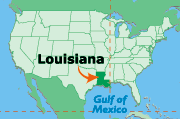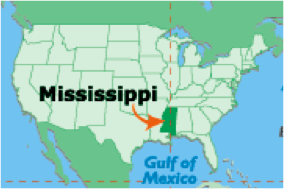Louisiana is the second in our series of featured IFPS programs. (See more at Mississippi.) Louisiana began offering intensive family preservation services in the 1990s. It was discontinued due to budget restraints and reinstated in 2007.
We asked the provider, Volunteers of America Greater Baton Rouge, LA, and the Louisiana State Administrator to talk about key elements of their program.
1.How long has your state offered IFPS? Share about the history of IFPS in your state.
| IFPS State Administrator: Louisiana DCFS has offered IFPS since 2007. It was available in the mid-90s; however, it became a casualty of significant budget restraints and was discontinued. It was resurrected post-Katrina in 2007, when funds became available, and has maintained funding each year now that we have data to support its success. Also, in March 2013, the Homebuilders® model of intensive family preservation became a Medicaid covered service, thereby opening it up to more families. |
IFPS Provider: We started in 1990 with a federal grant. In 1991, we started contracting with the State through OCS, later renamed to DCFS, to provide intensive home-based prevention and reunification services, based on the Homebuilders® model. |
2. Why does your state/agency offer IFPS?
IFPS State Administrator:
|
IFPS Provider:
|
3. What qualities do you want to see in providers of IFPS, both at the agency and at the therapist level?
| IFPS State Administrator: The Provider/Therapist would have to have:
All levels of the organization need to be “on board” when it comes to adhering to the Homebuilders® model. From the Therapist to the Program Supervisor and the Program Manager, all need to understand and implement the model with fidelity. |
IFPS Provider: The Provider/Therapist is someone:
|
4. What qualities do you look for in an IFPS therapist?
IFPS State Administrator:
|
IFPS Provider: See #3. |
5. How do you measure success of IFPS services? How successful are IFPS services in your state?
| IFPS State Administrator: Success is measured by:
Homebuilders® is an integral part of our family services menu and is regarded as highly successful in maintaining families safely. |
IFPS Provider: In baby steps often. Indicators we look for:
|
6. What advice and resources can you share with other states that want to establish a strong IFPS program?
IFPS State Administrator:
|
IFPS Provider:
|
Contacts:
IFPS State Administrator
Nell Aucoin
DCFS Child Welfare
Prevention and Family Services
Baton Rouge, LA
IFPS Provider
Raylene McKinnon
Director of Child and Family Services
Volunteers of America Greater Baton Rouge, LA
_______________
Posted by Peg Marckworth



